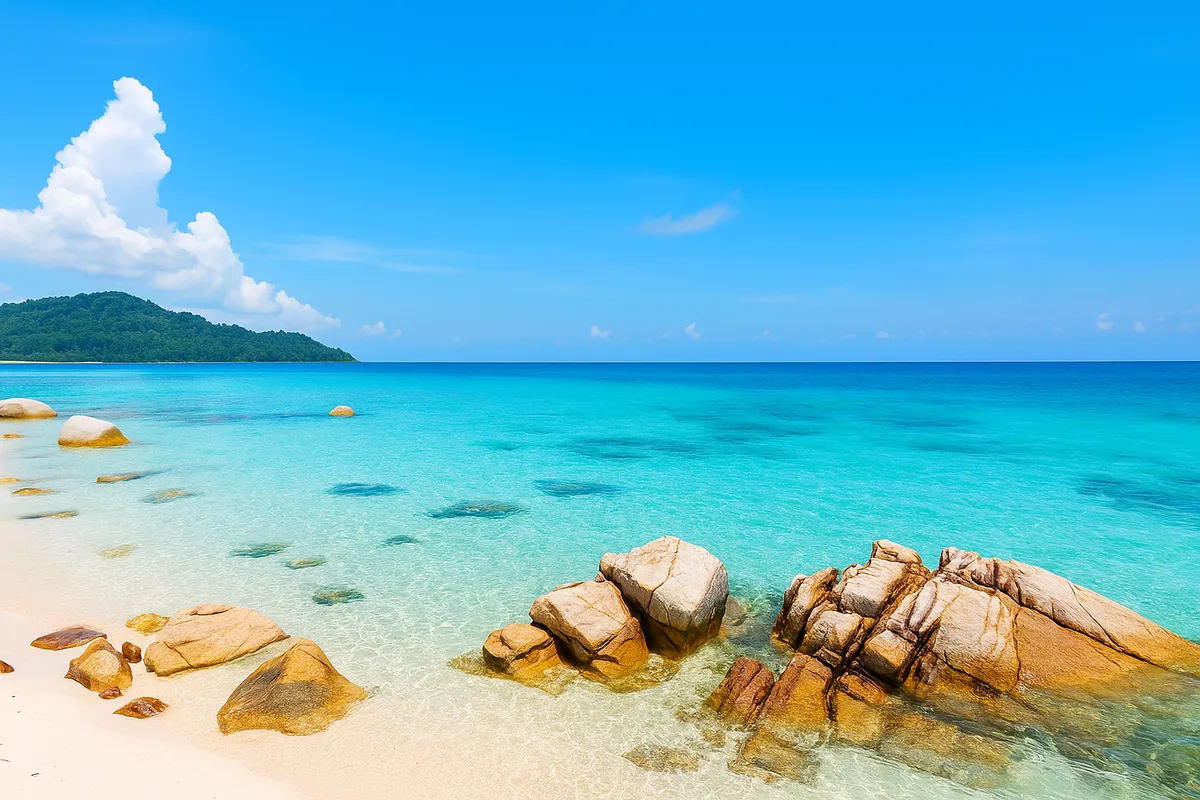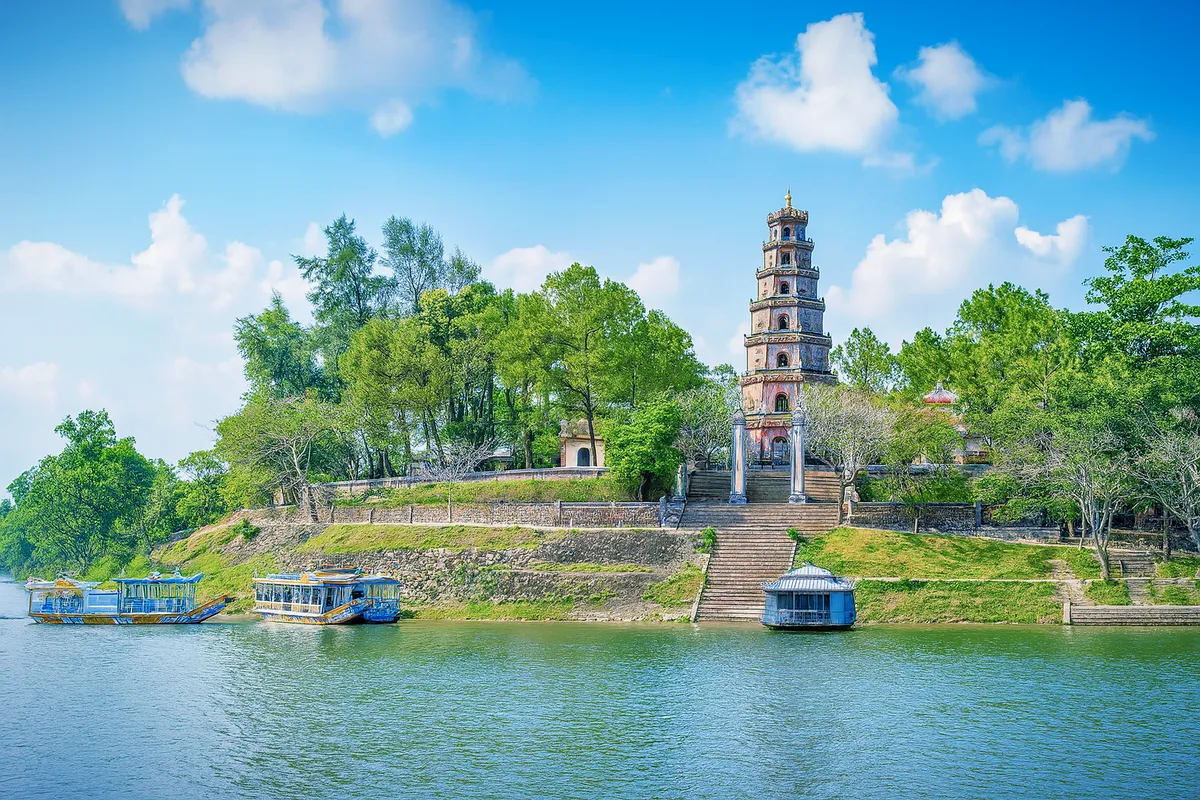Phu Quoc Island - A peaceful place that touches every sense
- Wednesday, Apr 23, 2025, 12:38 (GMT+7)
Phu Quoc Island - A peaceful place that touches every sense
At the break of dawn, the horizon over the sea shimmers in silver light, delicate as threads of heaven weaving a quiet symphony of wind, water, and time. In that boundless expanse, Phu Quoc Island emerges like a blossom unfolding on the ocean’s canvas—silent, unpretentious, yet powerful enough to stir the heart.
No one knows exactly when or how Phu Quoc earned the name “the Pearl Island.” Maybe it was when the sun dipped low over Bai Dai, where golden sands flowed like liquid sunshine across the skin of the sea. Or maybe it was when the coconut palms leaned into the breeze, whispering lullabies that have drifted from one generation to the next. Phu Quoc’s beauty isn’t the kind you’d find in a painting—it’s raw, unfiltered, like a myth just waking from centuries of sleep.
Take a walk through the winding paths of the island’s national park and feel time begin to slow. The rustling leaves, the scent of damp earth mingled with native essential oils, the towering trees standing like ancient guardians—all create a realm untouched by hurry. Occasionally, nature breaks its silence: the distant howl of a gibbon, a birdcall echoing through the canopy, all whispering that you may have just wandered into an unnamed land.
But Phu Quoc is more than its beaches and forests—it holds fragments of time itself. One such fragment lies quietly on the island’s eastern side, where the infamous Phu Quoc Prison, once dubbed “Hell on Earth,” still stands. Inside, dioramas of wartime brutality and haunting eyes frozen in time recount stories too heavy for words. It is a place of silence that roars, a slow song in the otherwise lively rhythm of modern tourism.
According to local legends, dragons once landed here, leaving their footprints among the strange rock formations in the island’s southern reaches. Boulders stack impossibly like the work of ancient hands. Fishermen still say that if you arrive at the right sunset and place your hand upon the stones, your wish might come true. Whether it’s magic or myth, everyone who tries leaves with a seed of belief in their chest.
In Ham Ninh fishing village, life moves as gently as the tide. Faded tin-roof homes and wooden boats resting beneath a purple twilight paint a scene like an ink wash painting. The local specialty, Ham Ninh crab, seems simple—but it carries the flavor of salt and soul. As the villagers say, “To eat crab without lime and pepper salt is like watching the sea without seeing the sunset.”
Phu Quoc is also a land of warm, golden flavors. In a corner of the night market, bun quay—a steaming bowl of rice noodles—sits in your hand, fragrant with scallions and anchovy fish sauce. This golden sauce is legendary; aged for a full year in boi loi wood barrels found only here, it delivers a taste that’s as deep as the sea’s memory.
Then, there is the sunset at Ong Doi Cape—a scene no words can capture. The sky turns a brilliant red-orange, melting into the sea like silk dyed in fire. It’s the kind of moment that makes cameras seem too small to hold such beauty. Perhaps that’s why people say: “Phu Quoc is not to be seen—it is to be felt.”
The best time to visit is from November to April, when the skies are clear, the sun is soft, and the sea calms like a sleeping soul. First-time visitors might prefer flying in for convenience, while others may choose the ferry from Rach Gia or Ha Tien to savor the slow transition from mainland to island. The journey isn’t difficult—but arriving always feels like stepping into another world.
A little-known wonder awaits deep within the forest: Duong Dong Lake, the island’s natural freshwater reservoir, often called its “hidden heart.” It quietly supplies life to the locals, and legends say that during full moons of old, lanterns were floated here in prayers for peace.
One thing to bring when you come to Phu Quoc is patience. This island doesn’t rush. Its winding roads, sudden rains that disappear as fast as they come, and the gentle sunlight filtering through the leaves—all ask you to slow down. Because beauty here is not in the destination, but in the journey.
A caption often shared online reads, “In Phu Quoc, a single glance is enough to lose your heart.” Maybe that’s why those who visit find it so hard to leave—as if some part of their soul has been quietly claimed by the white sands.
Phu Quoc is not a place to conquer. It is a place to let go. To release the busy thoughts, the burdens, the urgency. And standing at the edge of the ocean—vast and quiet—you might begin to understand why some longings remain unnamed. As someone once said, “Sometimes, all we need is a place where time stands still.”

 CHECKIN.VN
CHECKIN.VN








Share on